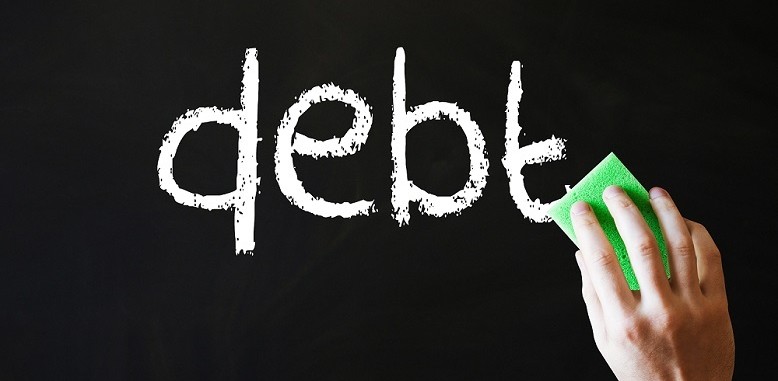Many people wonder what their options are when they are struggling to pay their bills? Financial hardship can stem from various factors that ultimately result consumers finding that their debts have spiraled out of control. A few examples of such hardships may include: the loss of a job, a reduction in the availability of overtime, a death of a wage earner, a serious illness or a disability. The two common ways a consumer may pursue debt relief is through Bankruptcy or debt settlement.
What Is Bankruptcy?
The Bankruptcy Code allows for someone who is struggling financially to discharge their debts (with some exceptions, like most student loans and taxes) through the Bankruptcy process. When most people think of bankruptcy, they are thinking of Chapter 7, which provides for an elimination of debts. If a debtor qualifies for Chapter 7 Bankruptcy, they can typically discharge their debts in just 4 to 6 months and get a fresh financial start. The best way to know if one qualifies for a Chapter 7 Bankruptcy, is to speak with an experienced Bankruptcy Lawyer in New York. When a debtor files for bankruptcy they receive the protection of the “Automatic Stay” which prohibits creditors from pursuing or continuing their debt collection efforts. At the end of the case, a debtor receives an order from the Bankruptcy Court which discharges their debts and which forbids creditors from collecting on those discharged debts.
What Is Debt Settlement?
Debt settlement is a method of debt reduction in which a debtor hires a company to negotiate with their creditors (usually credit card companies) to attempt work out discounted payoffs that will then be deemed as satisfied for less than the full balance. These payments are referred to as “settlements.” Most debtors will usually not have the funds available to make such a lump sum payment immediately, so the debt settlement company will instruct the debtor to stop paying their bills and to start making monthly payments into an escrow account set up by the debt settlement company or a third party. The objective is that as the funds build up in the account, the debt settlement company can use the funds to pay the settlements with the credit card companies who will be more willing to settle account that are delinquent. Once the debtor stops making their monthly payment to creditors, their delinquency will be reported to the credit bureaus and their credit score will be negatively impacted.
Debt Settlement Vs. Bankruptcy
Debt settlement companies promote their services through aggressive advertising and typically state in their ads that one of the benefits of their services is that consumers can “Avoid Filing Bankruptcy.” By doing this, they insinuate that debt settlement is better for your credit than filing for Bankruptcy. In our experience, this could not be further from the truth. When evaluating the pros and cons of both Chapter 7 Bankruptcy and debt settlement, Chapter 7 Bankruptcy is typically more favorable for one’s credit because it usually resolves debts quickly (in a matter of months) and allows one to start rebuilding their credit almost immediately.
In looking at the question of whether bankruptcy or debt settlement is more damaging for one’s credit, first we consider what a credit score is. When most people talk about a credit score, they are referring to one’s FICO score which is the most widely known credit score. A FICO score is comprised of five elements: (1) payment history, (2) credit utilization, (3) length of credit history, (4) new credit (5) credit mix. It has a range of 300 to 850 scale and a “good” credit score is said to be above 670, with excellent credit in the area of 750 and above. Lenders use the score to help determine: (1) whether to extend credit and (2) what interest rate they should charge. It goes without saying that, the higher your score, the better your credit options.
A credit score is supposed to measures one’s credit-worthiness. The concept behind the score is to give a number to the risk that is involved in lending to a given consumer. Lenders use the score to have a sense of how likely a potential borrower is to default on a new line of credit (credit card, home loan, auto loan, etc.). As noted above, if consumer stops making their monthly debt payments, the companies to whom payment is owed report the consumer’s delinquency to the credit bureaus. This will quickly pull a consumer’s credit score down.
How Does Debt Settlement Impair One’s Credit?
While many consumers who attempt to resolve their debt problems with debt settlement, they often do not appreciate the severe negative effect it will have on their credit score. The debt settlement companies do not advertise that it can take years for one’s accounts to be negotiated, nor do they advertise that certain credit card companies simply do not negotiate with some debt settlement companies.
Most debt settlement plans last for 36 to 48 months (three to four years). During that time, the delinquencies will be continuously reported to the credit bureaus until they are actually settled. This is devastating to a credit score. Contrast this with a Chapter 7 Bankruptcy, where the whole process is complete in a matter of months.
Additionally, credit card companies are able to file lawsuits against the non-paying debtor and obtain judgments against them. Creditors can enforce judgements via wage garnishments and/or frozen bank accounts. The judgments will also be placed on the debtor’s credit report and pull their score down further.
Furthermore, it should be noted that the late payments that go along with hiring a debt settlement company will remain on one’s credit history for up to seven years. The settling of an account for less than the full balance is considered by the credit bureaus to be a negative item because the debtor did not repay the entire debt as agreed under the original contract. This fact is not mentioned in their advertisements. One question to ponder when considering a debt settlement program: why would a lender offer credit during debt settlement plan with all the negative credit actions being reported as a result of the plan?
Finally, when considering debt settlement, although it would not necessarily affect one’s credit, there are potentially negative tax ramifications from settled debt. If the amount of forgiven debt is over $600, then the cancelled debt may be reported to the IRS and can result in tax liability for the debtor.
What Does Bankruptcy Do To One’s Credit?
When a debtor files for Chapter 7 Bankruptcy, they will usually notice a drop in their credit score, but the average Chapter 7 case only takes about 4 to 6 months. When the case is over, a debtor can start rebuilding their credit almost immediately. Once the bankruptcy is complete, the debtor who is looking to rebuild the credit must get positive credit actions onto their credit report. Our former clients have reported to us that there are a number of credit card companies, including Capital One, who offer credit cards to debtors shortly after discharge. Similarly, debtors can often get car leases right after bankruptcy. Additionally, a debtor can get an FHA mortgage loan after waiting two years from discharge. These different types of credit, if paid on time, will reported to the credit bureaus and will boost the debtors score.
The bankruptcy filing will remain on a debtor’s credit report for a maximum of 10 years, but the further the debtor gets from their filing, the less their credit score is affected by the filing. In fact, many debtors find that their credit score rises fairly quickly after the completion of a Chapter 7 Case. One year after discharge, a debtor’s credit score goes up an average of 75 to 135 points. Part of this is likely due to the debtor’s credit utilization is reset by the bankruptcy. Having a bunch of maxed out credit account move from the unpaid category on a credit report to the no balance section can have positive effect on one’s credit. If a debtor qualifies, there is no quicker way to eliminate debt and rebuild credit.
Finally, it should be noted, that if a consumer does not qualify for a Chapter 7 Bankruptcy, they may be able to receive the protection of the Bankruptcy Code by filing a Chapter 13 Bankruptcy petition. In a Chapter 13, the debtor proposes a 36 to 60-month plan to pay back their debts. The monthly payment plan can be a small percentage of the total debt owed all the way up to 100% of the debt. The percentage varies depending on various factors including the total amount owed as well as the debtor’s income and expenses. The debtor pays 0% interest on most debts and only claims that are timely filed with the Bankruptcy Court get paid through the plan. Finally, for the duration of the plan, the debtor receives the protection of the automatic stay which, as mentioned above, stays all collections efforts by creditors.
If you have any questions about Bankruptcy or debt settlement, please feel free to contact the Law Offices of David I. Pankin, P.C. at 888-529-9600 or by using our easy online contact form.






